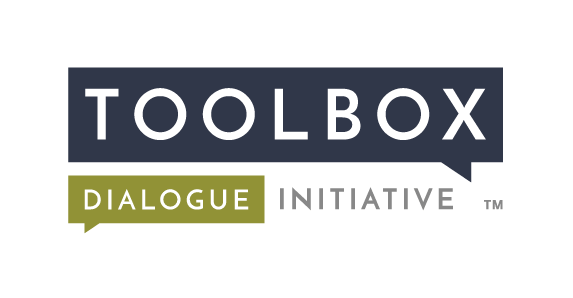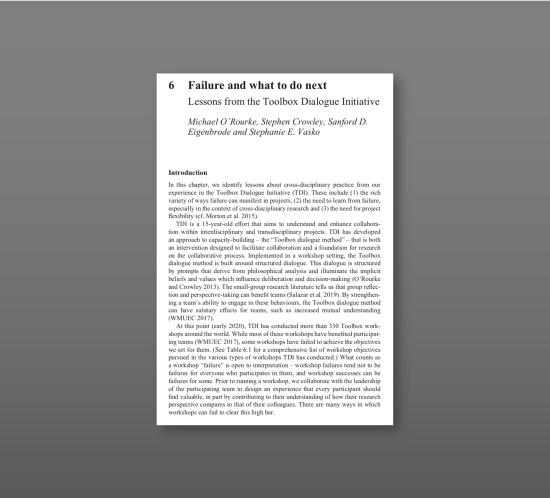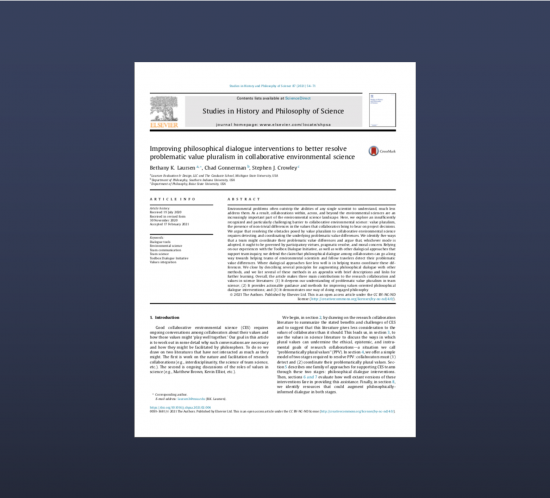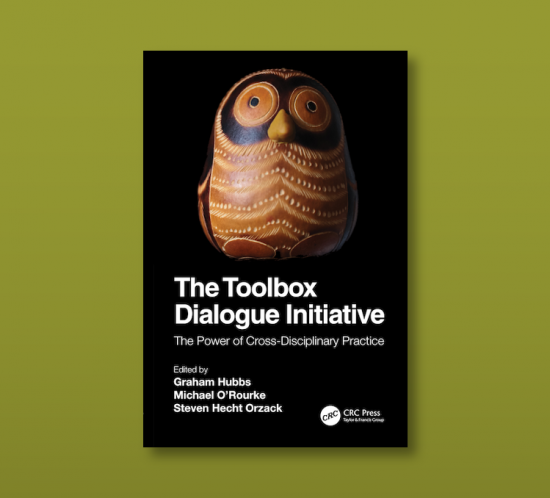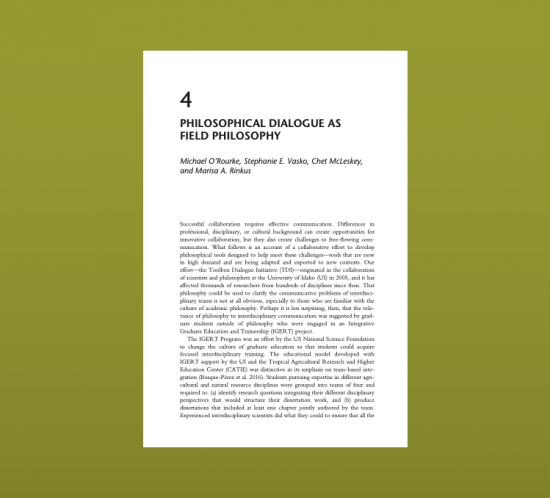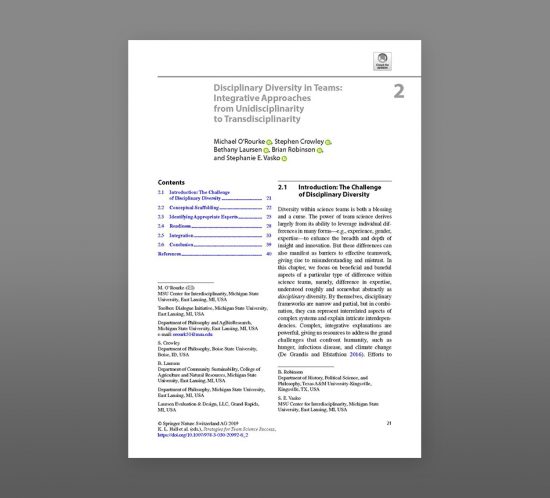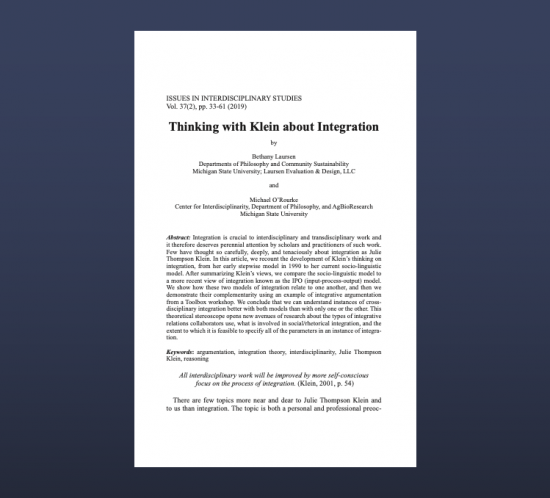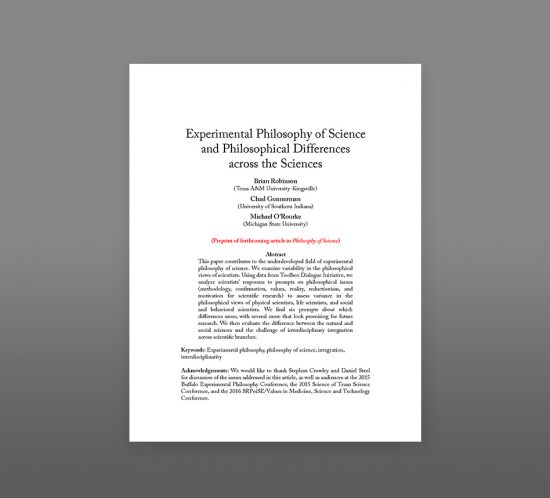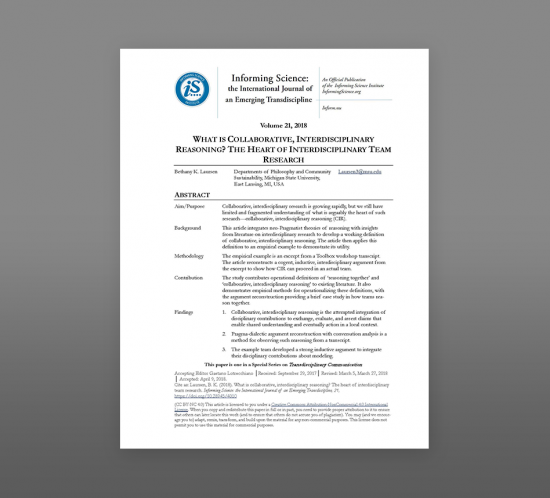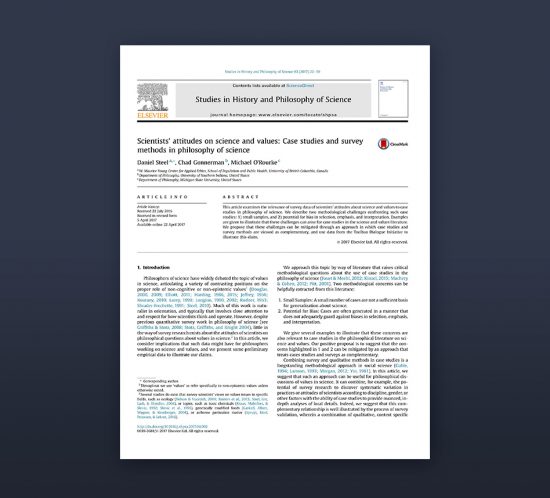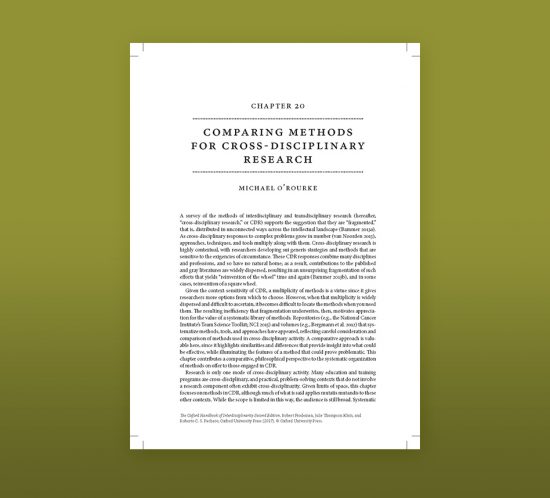Failure and what to do next: Lessons from the Toolbox Dialogue Initiative
In this chapter, we identify lessons about cross-disciplinary practice from our experience in the Toolbox Dialogue Initiative (TDI). These include (1) the rich variety of ways failure can manifest in projects, (2) the need to learn from failure, especially in the context of cross-disciplinary research
